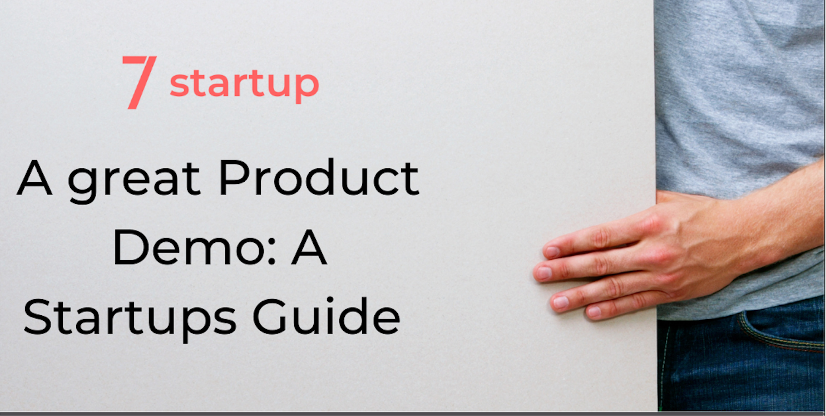Creating a high-quality and effective product demo for your startup’s product can be daunting, and it’s true that a lot can go wrong. To make it even more difficult, the people you pitch your product demo to are highly unlikely to give feedback and constructive criticism. This is where the guidance of startup consultants comes in handy, so you don’t lose investors’ interest before your foot is even in the door. Here are some top tips for creating a strong, superb product demonstration from experienced startup consultants. 
Make Sure Your Product Makes Sense
This includes those with no prior knowledge in your area – you need to be able to explain your product clearly and in layman terms as much as possible. Since you understand your product and possibly even built it yourself, it’s difficult to know which parts of your demo and product are not making sense.
Different Product Demos for Different Viewers
The product demonstration expected by an investor will be completely different to that expected by a potential user. You must always tailor your great product demo to the audience. For example, if you know the investors you’re pitching to have expertise in this field, feel free to get more technical and use industry-specific vocab. If you’re explaining your product to someone new to the field, you will have to demo your product in simpler terms.
Additionally, read the room when it comes to your tone and body language – excitable, loud product demos are going to turn certain audiences off, not turn them on. Stay in tune with the audience during your presentation and be sure to match their energy.
You also need to think carefully before demoing your product what it is your audience wants to find out: Do they need to know the intricacies of its functionality? Do they need a basic rundown of how to use it? Find out what your audience’s main concern will be and align your product demonstration with this. For example, if you’re pitching to investors who will be eager to know the revenue opportunities, you know to give (and show!) them this information that they want to hear. 
In short: great product demos should be well-suited to their audience, not necessarily always for the product.
Prep Time is Key
Whilst it’s important to know every little thing about your product, sharing all this knowledge in one product demo could actually be your downfall. When prepping for the demo, it’s better to spend that time envisioning all the questions you would like to ask your audience and anticipate the questions you will get asked in return. Then, prepare your answers.
Having this knowledge prepared for your product demonstration is key and keeps you prepared for the otherwise unexpected. It’ll help you to get all your cards prepped and ready, but remember not to play all your cards at once.
Be Fluid and Agile 
Members of your audience may interrupt you from time to time, and you need to be able to answer their questions and then get back on track. Becoming flustered when someone throws a spanner in the works makes it apparent that your product demo was rehearsed. Whilst demo rehearsals are great strategies and highly recommended, it’s equally as important that your presentation comes off as fluid, cohesive, and effortless.
Get to the Point
After you’ve figured out what it is your audience will want from your product, you must get to that point as quickly as possible. For example: “You have XYZ goal, but challenge ABC stands in the way. This is how the product will overcome this obstacle.”
Silence Can Be Your Best Friend
No one likes awkward silences, but why do they have to be awkward in the first place? Silence encourages people to speak to fill the gap in the conversation, and this could be the prime time to really get to know what your audience is thinking about your product. Of course, time is of the essence and you don’t want to waste what little time you have with your audience, but leaving some gaps for silence during question time can help you in the long run.

Question Time
Speaking of question time, remember to always leave enough time for a Q+A with your audience. Even if you’ve presented a thorough, highly informative product demonstration, your audience is still going to have questions about it. This part of your demo is one of the most crucial, and working on all of the great product demo tips mentioned so far will help you nail the Q+A.
Furthermore, always consider why a member of the audience is asking the questions that they are: Are they confused by your product? Are they insinuating that a market competitor solves the challenge better than your product? Do they not think you’re up for the challenge?

Amit Khanna, 7startup Founder
Amit has 18 years of experience in the industry and an MBA. He supports entrepreneurs with every aspect of their business including concept and product development, investor presentations, and fundraising. Amit & 7startup assist startups in the pre due-diligence process and help connect them to our vast network of investors. Reach out to us today and see if we’re a fit!





